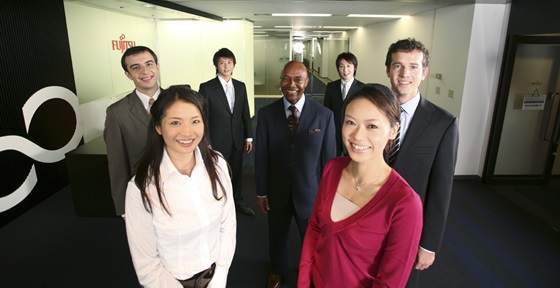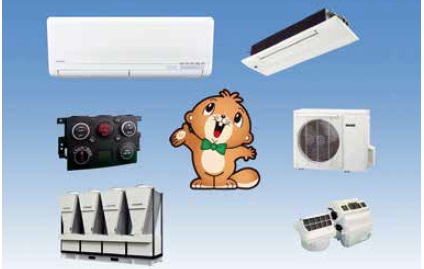Archived content
NOTE: this is an archived page and the content is likely to be out of date.
FUJITSU Enterprise Application PRO-NES
Customer Successes

PRO-NES is market leading manufacturing solution for Japanese SMEs; learn our customer success stories as below,
Mitsubishi Heavy Industries, Ltd
Integration of overseas system has enhanced the production potential and governance
 Air-Conditioning & Refrigerator Division, Machinery, Equipment & Infrastructure Domain, Mitsubishi Heavy Industry, Ltd (MHI) provides a wide line-up of equipment to create comfortable spaces. Its products range from residential-use air-conditioners as represented by the room-air conditioner "BEAVER" to commercial-use air-conditioners and large-sized refrigerating machines. MHI aimed to standardize its production management system from small-scale plant that supply their products to global markets but that cannot receive sufficient support from Japan. First, MHI introduced Fujitsu's FUJITSU Enterprise Application PRO-NES to two plants in Thailand. Fujitsu System West Limited (FWEST) contributed to MHI's enhancement of overseas bases' potential and strengthening of their governance by integrating the systems.
Air-Conditioning & Refrigerator Division, Machinery, Equipment & Infrastructure Domain, Mitsubishi Heavy Industry, Ltd (MHI) provides a wide line-up of equipment to create comfortable spaces. Its products range from residential-use air-conditioners as represented by the room-air conditioner "BEAVER" to commercial-use air-conditioners and large-sized refrigerating machines. MHI aimed to standardize its production management system from small-scale plant that supply their products to global markets but that cannot receive sufficient support from Japan. First, MHI introduced Fujitsu's FUJITSU Enterprise Application PRO-NES to two plants in Thailand. Fujitsu System West Limited (FWEST) contributed to MHI's enhancement of overseas bases' potential and strengthening of their governance by integrating the systems.
[Challenges and Results]
| The Challenges Before Implementation | The Results After Implementation | |
|---|---|---|
| MHI wanted to integrate the production management systems that varied by plant and to enhance the potential and governance of the bases. |
|
Integrating the system with PRO-NES has enhanced the governance. A support model for four-axis system has been also established. |
| MHI wanted to introduce and expand the production management system to overseas bases while minimizing the time and cost required to do that. |
|
PRO-NES made it possible to implement the system in a short time. MHI is now considering further promoting efficiency through the cloud. |
Making efforts to enhance potential of the bases and to strengthen governance by integrating the systems of overseas bases
MHI has shifted its production to overseas locations and aims to build a supply chain that can promptly cope with production speed and diversification. The production management system of two plants in Thailand was changed into PRO-NES. With that, MHI managed to integrate the system for production, procurement, and security in overseas bases while creating a solid governance system.
Mr.Satoshi Horibe, Manager, Head Team, recalls of that time "MHI started expanding overseas from the 1980s. Due to changes in markets and business strategies, MHI transferred its production to overseas locations, and moved production of its major products of air-conditioners for residential use and for commercial use in 2003 and 2008, respectively. The system departments in overseas small-scale bases had workforce shortages and not enough support was provided from Japan. A lot of tasks were left to the discretion of a local company in almost all cases. As a result, the operations were managed by systems that differed by country and base. The systematized scope of work and security and administrative control varied depending on the bases and it was difficult to connect between bases in way such as SCM. Under these conditions, there were urgent needs to modernize the systems in overseas small-scale bases, connect between bases, enhance collaboration with Japan, and renovate the system for the purpose of governance of security etc."
Mr.Horibe talks about the selection of a system and vendor: "The business environment was tough and the personnel, costs, and time were also limited. We considered that the package was best-suited for launching a light and smooth system in a short period. The reason we chose Fujitsu was its development capability and comprehensive strength. Fujitsu did what we expected and we are very satisfied with both these aspects. With respect to its development capability, Fujitsu shared the vision we had pictured and actualized such vision in the form of functions; SEs with much knowledge about the system earnestly tackled this project. Concerning its comprehensive strength, first of all, we can say that Fujitsu has an excellent support system. Fujitsu also has local bases in Thailand and China. Thanks to local support by Fujitsu including Fujitsu Systems Business Thailand (FSBT), stable operations have continued without any great confusion in overseas bases since the systems were introduced. In the event that there is a problem that cannot be resolved by overseas bases on MHI and Fujitsu, the issues is escalated as a problem in Japan and then the Air-Conditioning & Refrigerator Division in Japan and Fujitsu collaborate to resolve it. In addition to its local support departments, we feel that the success in establishing such a solid four-axis system was attributed to Fujitsu where individuals in charge of sales and development in Japan always face problems from the perspective of customers. We can also say that Fujitsu's comprehensive strength is its ability to make proposals. During this project, Fujitsu proposed effective methodologies and ways to overcome our issues with a great number of solutions. It is Fujitsu that can make proposals from a comprehensive perspective."
Sharing visions related to global strategy to achieve them with our belief and development capability and comprehensive strength
Mr.Horibe continues to talk about the future concept of overseas bases: "Bases need to carry out quick and flexible operations according to rapid change in demand, as their current global strategy. We consider that the system suited to such a global strategy is the cloud because its introduction and maintenance are light and smooth. We will make use of these advantages to develop overseas bases. The feature of our system department is that we have no departmental barriers and can see the whole company. As in-house SEs, we must pay attention to the issues ranging from workflow to business strategy, look at the vision a few years later, and make the best proposals in response to the management executives' demands and our company objectives. And we will expect Fujitsu to achieve these best proposals with its development capability and comprehensive strength." Responding to the expectations of Mr.Horibe, Shoichi Kimura at FWES talked as follows about the future plan, "I think the success of this project and the achievement of the four-axis system is due to our sharing of clear visions from the concept to the ways of implementing it and strong belief in Horibe's team members. Modeled on the MHI case, we will help to globally expand Japan's manufacturing."
We at FWEST will continue to make contribution to our customers with our development capability and comprehensive strength.
Customer's Company Profile
| Name | Mitsubishi Heavy Industries, Ltd. |
|---|---|
| Address | MHI Head Office Building, 16-5 Konan 2-Chome, Minato-ku, Tokyo (Air-Conditioning & Refrigerator Division, Machinery, Equipment & Infrastructure Domain: 3-1 Nishibiwajimacho-Akashi, Kiyosu, Aichi) |
| Established | January 11, 1950 (founded in 1884) |
| President | Shunichi Miyanaga |
| Employees | 31,111 (non-consolidated), 68,213 (consolidated) (as of March 2013) |
| Business | Engineering, manufacture and sale of ships, power systems, environmental improvement equipment, industrial machinery, aircraft, space systems, air-conditioner, etc. (Developing global network by MHI (Mitsubishi Heavy Industries) Group consisting of 170 companies in Japan and 146 overseas.) The Air-Conditioning & Refrigerator Division provides high-efficiency products and services that support core industries such as air-conditioners for commercial, residential, and vehicle-use, rotary compressors, and large-sized refrigerating machines. |
| URL |
[Head Office]
[Air-Conditioning & Refrigerator Division]
|
